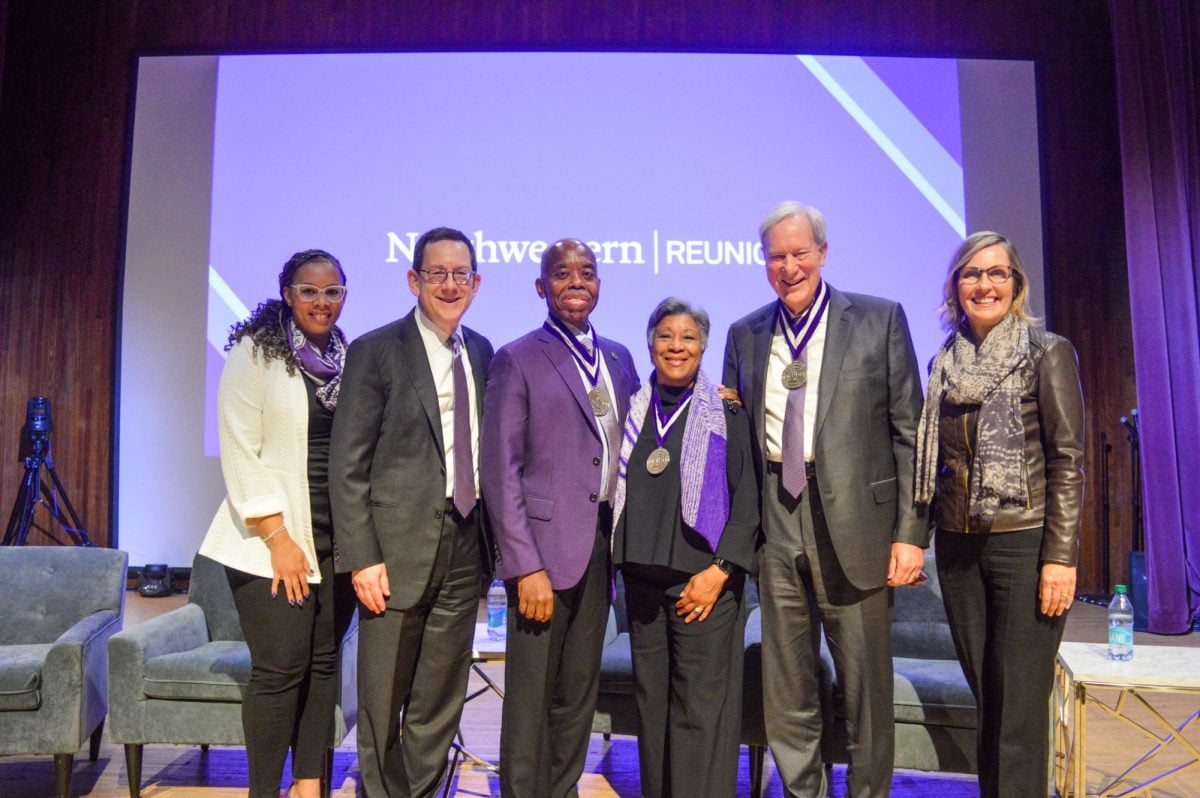CHICAGO – The U.S. government has the right to kill its own citizens overseas without a court order if they are plotting terrorists attacks against their country, U.S. Atty. Gen. Eric Holder asserted Monday in a speech at Northwestern Law School.
Holder spoke to a crowd of law students and judicial officials that filled the law school’s 700-seat Thorne Auditorium. He concentrated on the need to consider both constitutional freedoms and security in the fight against terrorism.
“In this hour of danger, we simply cannot afford to wait until deadly plans are carried out – and we will not,” Holder said.
His remarks came in the wake of controversy over the death of Anwar al Awlaki, an American-born Islamic cleric who was killed in a U.S. drone attack in Yemen in September. Civil liberties groups such as the ACLU have said Awlaki’s death violated the Fifth Amendment, which states that no American may be deprived of life without due process.
“‘Due process’ and ‘judicial process’ are not one and the same, particularly when it comes to national security,” the attorney general said. “The Constitution guarantees due process, not judicial process.”
Although Holder did not specifically address Awlaki’s slaying, he described testimony from another would-be terrorist, Umar Abdulmatallab, that Awlaki had trained him to carry out an airplane bombing.
Three criteria must be met in order to justify the targeted killing of a U.S. citizen, Holder said. The individual must pose “an imminent threat of violent attack.” Capture must not be feasible. And the operation must be conducted in accordance with applicable laws of war.
The attorney general added that civilian courts must continue to play a significant role in terrorism prosecution. He criticized the suggestion that the United States should deal with all terror-related proceedings through military means.
“These calls ignore reality,” Holder said. “And if heeded, they would significantly weaken – in fact, they would cripple – our ability to incapacitate and punish those who attempt to do us harm.”
Katie Donn, a 1996 NU law graduate who attended the speech, praised Holder for outlining a nuanced counterterrorism policy.
“I just think he’s brilliant,” she said. “I was impressed by the sensible approach of balancing liberty against security concerns.”
But Liza Kostinskaya, a current law student, questioned Holder’s definition of due process, saying he had not explained how it differs from judicial process. She also noted that Holder had not engaged in a question and answer session with the audience, as guest speakers at the law school typically do.
“I think they’re trying to get out of something there,” she said.
University spokesman Al Cubbage, who also attended the speech, said he found it to be a well-reasoned legal argument. The attorney general’s chief of staff, Gary Grindler, is an NU Law alumnus, and the University has been trying to bring Holder to speak on campus for several years, Cubbage said.
Whether or not other listeners agreed with Holder, Cubbage said, “It’s good to hear directly from the attorney general.”






